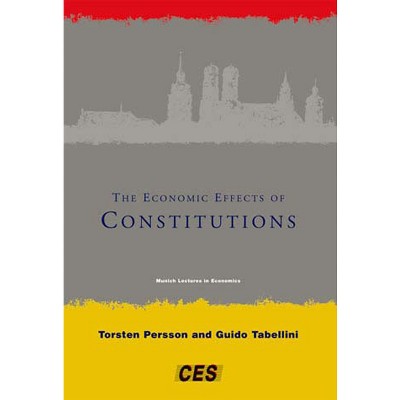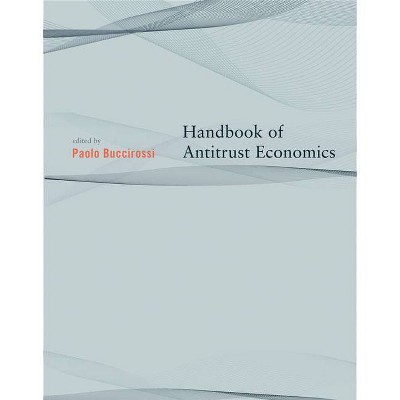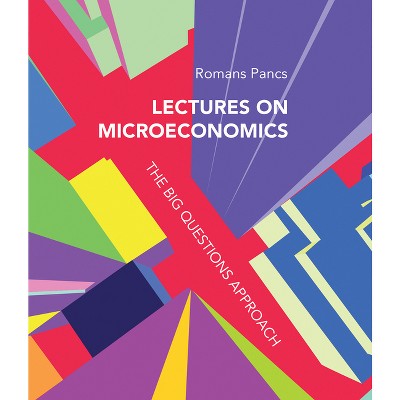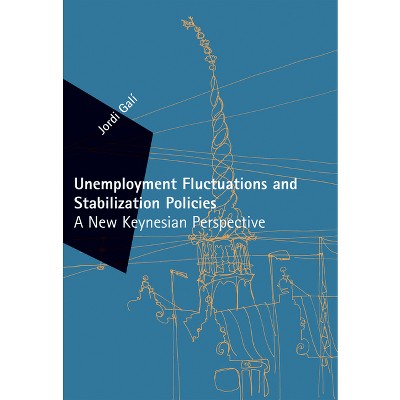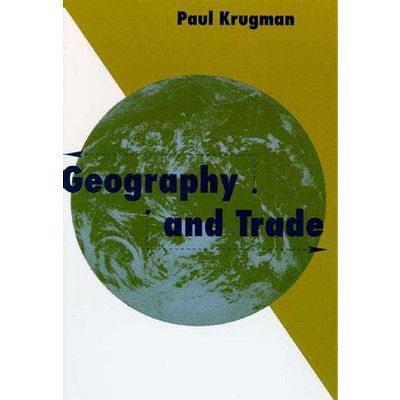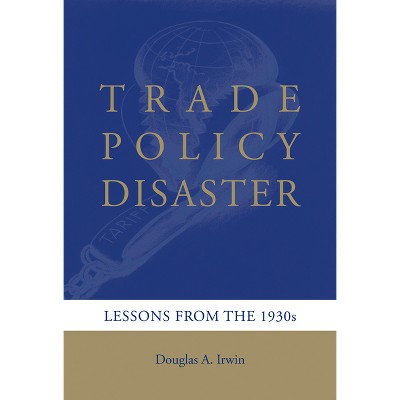Sponsored

Lectures on Antitrust Economics - (Cairoli Lectures) by Michael D Whinston (Paperback)
In Stock
Sponsored
About this item
Highlights
- Antitrust law regulates economic activity but differs in its operation from what is traditionally considered "regulation.
- About the Author: Michael D. Whinston is Robert E. and Emily H. King Professor of Business Institutions in the Department of Economics at Northwestern University.
- 264 Pages
- Business + Money Management, Economics
- Series Name: Cairoli Lectures
Description
About the Book
An account of the economics behind antitrust law, discussing recent developments in the areas of price fixing, horizontal mergers, and exclusionary vertical contracts.Book Synopsis
Antitrust law regulates economic activity but differs in its operation from what is traditionally considered "regulation." Where regulation is often industry-specific and involves the direct setting of prices, product characteristics, or entry, antitrust law focuses more broadly on maintaining certain basic rules of competition. In these lectures Michael Whinston offers an accessible and lucid account of the economics behind antitrust law, looking at some of the most recent developments in antitrust economics and highlighting areas that require further research. He focuses on three areas: price fixing, in which competitors agree to restrict output or raise price; horizontal mergers, in which competitors agree to merge their operations; and exclusionary vertical contracts, in which a competitor seeks to exclude a rival.Antitrust commentators widely regard the prohibition on price fixing as the most settled and economically sound area of antitrust. Whinston's discussion seeks to unsettle this view, suggesting that some fundamental issues in this area are, in fact, not well understood. In his discussion of horizontal mergers, Whinston describes the substantial advances in recent theoretical and empirical work and suggests fruitful directions for further research. The complex area of exclusionary vertical contracts is perhaps the most controversial in antitrust. The influential "Chicago School" cast doubt on arguments that vertical contracts could be profitably used to exclude rivals. Recent theoretical work, to which Whinston has made important contributions, instead shows that such contracts can be profitable tools for exclusion. Whinston's discussion sheds light on the controversy in this area and the nature of those recent theoretical contributions.
Sponsored by the Universidad Torcuato Di Tella
Review Quotes
"This book is a gem: concise, to the point, and beautifully written. I cannot think of a better introduction to antitrust economics and policy. The lectures are particularly successful at integrating theoretical models and empirical analysis."--Patrick Bolton, Barbara and David Zalaznick Professor of Business, Columbia Business School
"Whinston offers great clarity, penetrating analysis, and fresh insights at the cutting edge of antitrust economics. The chapter on price fixing alone is worth the price of admission."--Carl Shapiro, Haas School of Business and Department of Economics, University of California, Berkeley
"Whinston presents a wonderful blend of theory, empirical work, and the practical side of antitrust law. Rigorous, yet broadly accessible to those serious about antitrust analysis, these thoughtful and thought-provoking "Lectures" offer a synthetic survey of and distinctive perspective on each of the subjects addressed."--Louis Kaplow, Finn M. W. Caspersen and Household International Professor of Law and Economics, Harvard Law School
About the Author
Michael D. Whinston is Robert E. and Emily H. King Professor of Business Institutions in the Department of Economics at Northwestern University. He is a coauthor of Microeconomic Theory.Shipping details
Return details
Trending Non-Fiction






